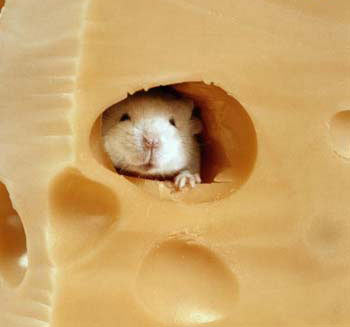Stinky or moldy, cheese remains most delicious product on Earth
Cheese can be described as one of the most valuable products: the human organism assimilates 98.5 percent of its protein
The origin of such a remarkable and delicious product as cheese is still a mystery. Most likely, humans did not invent the product, but defined its formula by watching the qualities of milk left in a warm environment. The coagulating quality of milk probably gave rise to the technological production of cheese. 
One can enjoy hundreds of kinds of cheese nowadays, which differ on the type of milk, its origin and curdling methods. Cheese can be made on the base of cow, goat, sheep, horse and even camel or yak milk.
Cheese contains up to 32 percent of fat, 26 percent of protein, up to 3.5 percent of organic salts, A and B vitamins. More importantly, the cheese protein becomes fully dissolvable during the ripening process. Cheese can be described as one of the most valuable products: the human organism assimilates 98.5 percent of its protein. Needless to say that it is one of the most delicious products on Earth.
Hard cheese
Hard cheese is the foundation of all cheese varieties. It takes a few stages to produce it. The curdling of milk is carried out at the first stage. The proteins are separated from the whey. A special ferment, rennin, is used to make the product pure and good-tasting. A hard mass, rennet cheese, is crushed to prepare hard cheese. All kinds of hard cheese are placed into special chambers for ripening. The process is complex and lengthy, from 20 days to 6 months.
Blue cheese
Mold fungus is bad for your health. But mold in a blue cheese means no harm. The mold is produced in the special laboratories and injected manually into each cylinder of cheese with a syringe. Once injected in the cheese, the mold will grow to manifest itself in blue veins.
Soft cheese
Soft cheese resembles curd cheese. However, a genuine rennet cheese is its basic ingredient. Soft cheese never undergoes a ripening process. It is boiled until the milk is fully curdled. Then they dry it out, and the cheese is ready. Soft cheese is the youngest kind among the other varieties. For example, milk is delivered to the plant today, and cheese is produced on the following day.
Storage tips
Cheese is a very delicate food product. Oxygen and microorganisms in your fridge (even if it is spick-n-span) are especially harmful to cheese. The fridge will harden cheese without a wrapper. You had better refrain from stocking up on cheese. Should anybody give you an entire cylinder of cheese for your birthday or something, wrap it up in brown paper first, then place it on a wooden board, and cover it with some glass bowl. Now your cheese is ready to go into the fridge.
Discuss this article on Pravda.Ru ENGLISH FORUM
Subscribe to Pravda.Ru Telegram channel, Facebook, RSS!





